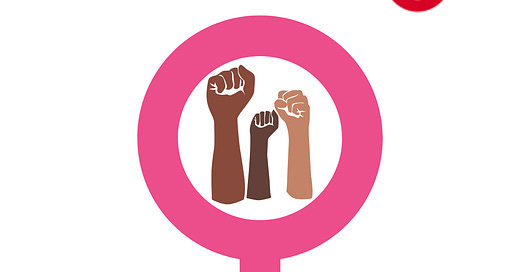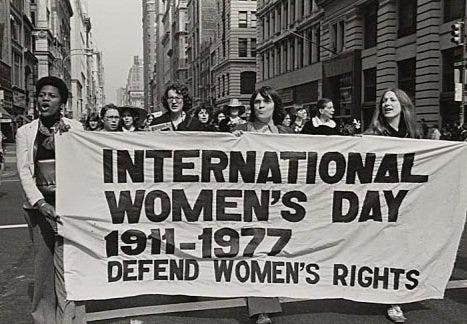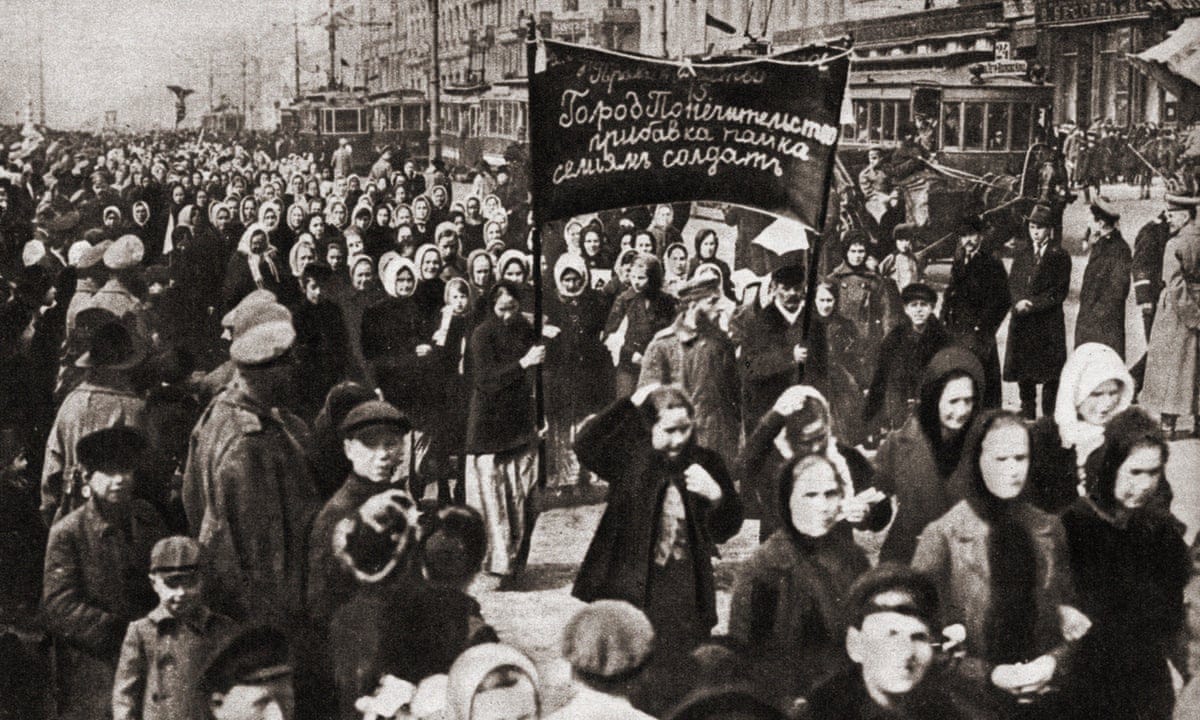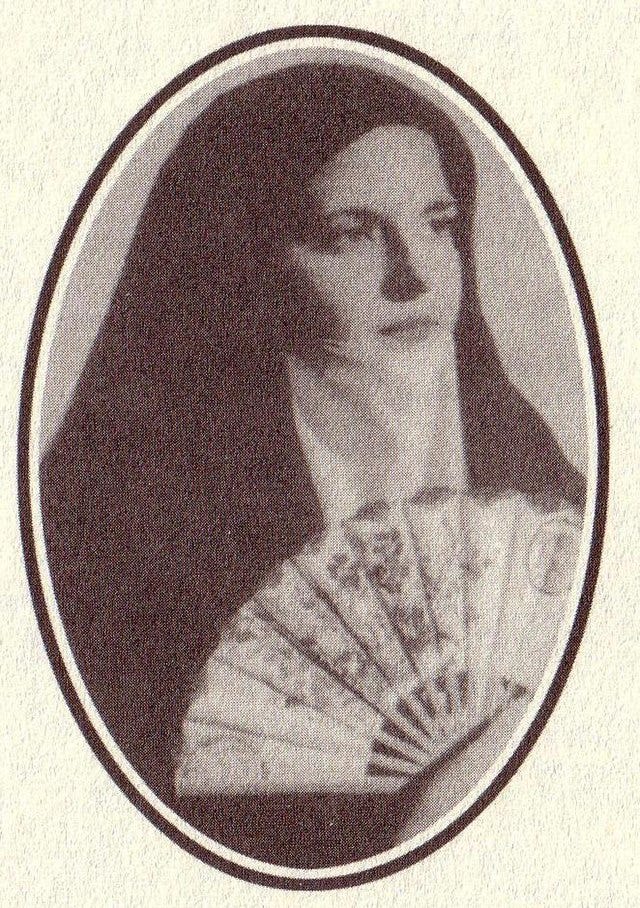Are you ready? Did you make your signs? Got your flags? Drums? Molotov cocktails? Just kidding (not really, but I have to say that online...). It’s International Women’s Day y’all, and we need to hit the streets! Women’s rights are human rights. How women are being treated speaks volumes of a society, a civilisation, a legal framework, a company, a policy, a family. Improve the life of women, and you improve the life of everyone and everything, I mean job environments, urban design, the protection of nature.
Protesting, as we have seen since the genocide in Gaza, has no impact whatsoever on reality — we need to say it like it is — but our actions not changing things doesn’t mean we don’t do it, right? Protesting is a way of saving our souls, keeping a corner of our higher selves free from the control of authorities. It’s a way of showing others that they can come join us, and need not be afraid. It’s claiming our convictions openly and proudly, whatever age or ethnicity or economic background.
Protesting is also a duty towards women of the past who took to the streets for the rights we do enjoy today such as voting and being alowed to open a bank account (wtf), and towards women in countries where demonstrating lands you in prison. In many countries, demonstrating is relatively safe, and the utmost that can happen is being arrested for a few hours or hit by a police baton. Don’t get me wrong, I’d like to avoid both, but marching means prison, torture, or execution in far too many places, so we need to put things into perspective.
✊🏽💃🏽🎉
It’s true that, like all good things, corporations and politics have hijacked International Women’s Day for their own agenda: hypocrits like the (finally) outgoing German foreign affairs minister Anna-Lena Baerbock can promise a “feminist foreign policy“, and then not only condone indiscriminate AI-powered slaughter affecting the women and children of Gaza the most, but actually increase arms deliveries to an aggressor that stands accused of genocide at the International Court of Justice – this is mind-boggling!!!
Global companies like Nike dare to launch Women’s Day advertisement, pretending their products empower women with enough money to buy their sports-gear. Meanwhile, in the sweatshops of Cambodia, Nike owes the women producing those shoes and shirts millions of dollars.
In the beginning, Women’s Day was combative, angry, demanding, a force to be reckoned with, and that is how it should be, and that is how we should be every day (not to discredit the diversity of ways we contribute to women’s rights, including peaceful resistance, kindness when they system wants us to be cruel to one another, and simply living our life as we want to unapologetically).
It all started in February 1909. Women members of the Socialist Party of America (oh, how the tide turned since then) demonstrated for the rights of female workers in New York. A year later, delegates at the International Conference of Working Women in Copenhagen got their motion for a Women’s Day accepted. We owe the date of the day to comrade Lenin himself who chose 8 March in 1922 in commemoration of a huge women’s protest on 8 March 1917 when the female textile workers of Petrograd demonstrated for bread and peace, an end to the first world war. Their protest engulfed the whole city, became a strike, and four days later, the tsar abdicated, a provisional government instituted women’s voting rights, and half a year later, the Russian Revolution begins, fuelled by the events set in motion by women.
Yes, protesting can and should be fun, and we also ought to remember the origins of specific days, why they started, and what they accomplished. Because the world is nowhere near gender equality today. In fact, in many ways, we’re sliding back. But instead of recounting current woes we all know all too well from the pay gap, to threatened reproductive rights, and levels of domestic violence as high as ever everywhere, this post is about what we owe women in relation to language. In relation to punctuation, literature, and digital communication. Women have always been at the forefront of language innovation, questioning and subverting rigid structures, and driving change that, a few decades later, will be adopted by everyone. Words, voices, punctuation, emojis: women own them; women do magic with them; women see what’s under and above and behind them in the ever-evolving play with itself that is language.
✊🏽💃🏽🎉
PUNCTUATION INNOVATION
The history of punctuation is one of individuals who wanted to make reading easier, faster, and clearer. There’s Aristophanes, head librarian at Alexandria 2000 years ago, introducing dots at different levels of the line for his inexperienced readers, struggling with long and complicated Greek sentences. There’s Coluccio Salutati, the Renaissance writer and politician from Florence who sectioned off words (said within other words) by parentheses. There’s Iacopo da Urbisaglia inventing the exclamation mark! And Aldo Manuzio the semicolon; Maurice Kyffe the dot dot dot…and then there are those who are perhaps even more important than the parents of punctuation marks: those who use them. Those who understand them. Those who spread them in their writing, and advocate for their adoption.
One of those dedicated punctuation-defenders was the Lebanese writer and intellectual Zaynab al-Fawwaz who, at the end of the nineteenth century, lobbied for the adoption of Western punctuation in Arabic script.
Punctuation in Arabic and Persian is young, although those languages demarcated parts of their sentence through different ways than abstract symbols, opting for flowers, or tear drops, or a decorative arrangement of dots. Zaynab saw how a lack of more intricate punctuation was making Arabic more difficult than it needed to be, requiring a high level of education and knowledge. This caused Arab readers and writers to reach for the colonial language French, causing a decline in secular texts in Arabic. Zaynab and her circle wanted to prevent the colonialisation of their minds, and thus suggested importing Western punctuation in an attempt to push out the foreign language with its own weapons. Click here for the whole story of punctuation in Arabic from the Koran to punctuation’s role in the oppression and liberation of Palestine.
✊🏽💃🏽🎉
STANDARD FORMS AND PUNCTUATION
Nearly a century after Zaynab’s proposal to turn punctuation into an anti-colonial force, American feminist Andrea Dworkin asserted dots and dashes were servants of the status quo, and thus patriarchy. In her ‘Afterword: The Great Punctuation Typography Struggle’, appended to her seminal work Woman Hating: A Radical Look at Sexuality (1974), Dworkin connects text (and how it looks like on the page) with gender and sexuality, homing in on apostrophes and friends as over-regulating language:
my publisher, in his corporate wisdom, filled the pages with garbage: standard punctuation, he knew his purposes; he knew what was necessary, our purposes differed: mine, to achieve clarity; his, to sell books.
Curiously, Dworkin aptly wields the semicolon to highlight the parallel sentence structure of ‘he knew…; he knew’, and especially ‘mine, to achieve clarity; his, to sell books’: the semicolons deftly pit the spokesperson of capitalism against the free-wheeling artist. Dworkin’s individual punctuation choices, she insists, support not only clarity, but also liberate the reader to roam around her texts like wild things, like free agents. ‘how the printed work appears on the page’, she says, ‘where to breathe, where to rest, punctuation’ – all this is pushing the reader into a straightjacket of someone else’s preference. Dworkin holds herself accountable, alleging even she ‘overorchestrated’, adding ‘I forced you to breathe where I do, instead of letting you discover your own natural breath.’
It’s hard not to quote every sentence of Dworkin’s afterword – it’s just so good – even though it’s tough news for a punctuation-lover:
standard forms are imposed in dress, behavior, sexual relation, punctuation. standard forms are imposed on consciousness and behavior—on knowing and expressing.
Such standard forms, or conventions we all implicitly agree to (or are made to agree to), imprison us subliminally, she argues, so much so that the authorities don’t even need to police us: we police each other, criticising, belittling, judging, excluding, and persecuting anyone and anything that dares drop off the beaten path and have the gall to claim authenticity. In that sense, punctuation is not so much the issue, but its standardisation used as a measurement of supposed (ab)normality and as a tool for control and oppression.
Dworkin herself shows how punctuation can act as a sneakily powerful way of subverting authorities when it’s employed subjectively. She bluntly admits that she is ‘an anarchist’, adding ‘I advocate revolution, and when people ask me what can we do that’s practical, I say, weakly, weaken the fabric of the system wherever you can, make possible the increase of freedom, all kinds. When I write I try to extend the possibilities of expression.’ Punctuation can be such an amplification of expression.
Rebellion is what you make it, and so, whenever we’re creative with our punctuation, we dig away at the powers that be which want us nicely boxed into homogenous castes, so that they can control us better. For doesn’t the training of obedience already begin in the classroom? When you’re made to sit still as a child for an unbearable amount of hours each day, having arbitrary rules of spelling and punctuation drilled into you, and if you “make a mistake“ to what someone else chose to be a rule, you’re downgraded and berated. This means becoming a good citizen means accepting invisible shackles that are not real, yet feel so, allowing the state, the employer, the police, and the media to yank us this and that way. This is what standardisation does to us, creeping into our minds and hearts, whispering lies to us. Punctuation is the illness, aiding and abetting, but it is also the cure. So, go and punctuate freely however you like!!!!!!!!!! For more on Dworkin and rebellious punctuation, click here.
✊🏽💃🏽🎉
WOMEN AND ONLINE COMMUNICATION
It is true. Women use more exclamation marks online. You’ve heard it here from your personal punctuation expert. That’s why product strategist Tami Reiss has launched a Gmail plug-in, tellingly named “Just Not Sorry” that flags up supposedly ‘undermining’ words and expressions, so that writers can rephrase. Those include ‘just’, ‘sorry’, ‘I’m no expert’, and ‘does that make sense’, as well as the somewhat mystifying ‘think’ (surely thinking a good thing?). The exclamation mark also features among the list of ‘warning phrases’ all of which allegedly ‘denote lack of confidence’.
According to Reiss, using the no-go words and signs frequently ‘makes you appear unfit for leadership’. Although the 20.000 plus users of the extension are a mixture of genders, the add-on particularly targets women whom it attests especial weakness to exclaim and apologise. Joanne McNeil has created a Chrome extension doing your emotional labour for you by adding exclamation marks to your sentences in emails. This is just a spoof (thankfully), but such stigmatisation of language and punctuation is of a piece with misogynist attitudes towards women’s fabled emotionality, and so, our opinions about certain marks of punctuation becomes representative of much more than preferences around grammar.
Both the vilification of the exclamation mark (and of the ‘warning list’ words) as well as attempts to restrict exclamation mark use are misguided. They’re neither in line with the attitude towards and habits around the mark of the better part of its 700-year history, nor is there scientific proof for a certain kind of punctuation diluting authority. In fact, quite the opposite.
Sociological studies have found that digital exclamations primarily communicate friendliness: a 2006 scrutiny of professional chatroom exclamation mark habits conducted by Carol Waseleska has shown that while it is indeed women who exclaim more often than men, the function of their punctuation was bridging the inevitable distance of online communication through increased friendliness. It is hard to argue that ‘you’re welcome!’ does not seem kinder than ‘you’re welcome’. Incidentally, incendiary exclamation marks (often doubled and tripled exclamation marks) exclusively occurred in posts by men, complaining and insulting others.
Women, particularly young women, drive language change, developing and spreading new words, new grammar, and new ways of pronunciation sooner than men who, inevitably, adopt those innovations a few years or a generation later as explored by Amelie Friedland in her fun and informative book I reviewed here. Zaynab identified punctuation as a catalyst for decolonialising Arabic-speaking North-Africa decades before her colleagues pushed the adoption of commas and colons through.
She saw it.
She said it.
And it was done.
Those who society likes to caricature as silly, weak, insignificant, and supercifical are the change-makers of what has allowed humans to become who we are: language. Those who society charges with irrationality, over-expressive emotions, and a lack of power are excellent creators of connection, able to bridge the chasm that digital communication slaps between people who cannot see or hear each other, and who don’t even hold material proof of the sender’s existence in their hands, a piece of paper with handwriting. All we have now are words and pictures sent by another human from their device to ours. It’s hard to under-estimate the dissociation that occurs through computer-mediated communication. Women know how to transcend this coldness through their cushioning words, their peppering of exclamation marks, and their softening emojis. What’s wrong with making this world friendlier? Being kind and helpful when they want you to be selfish and hostile is an act of resistance.
And now, have yourself an International Women’s Day exactly as you like it: quietly contemplative, or loud and visible. I’m off to the streets now!








